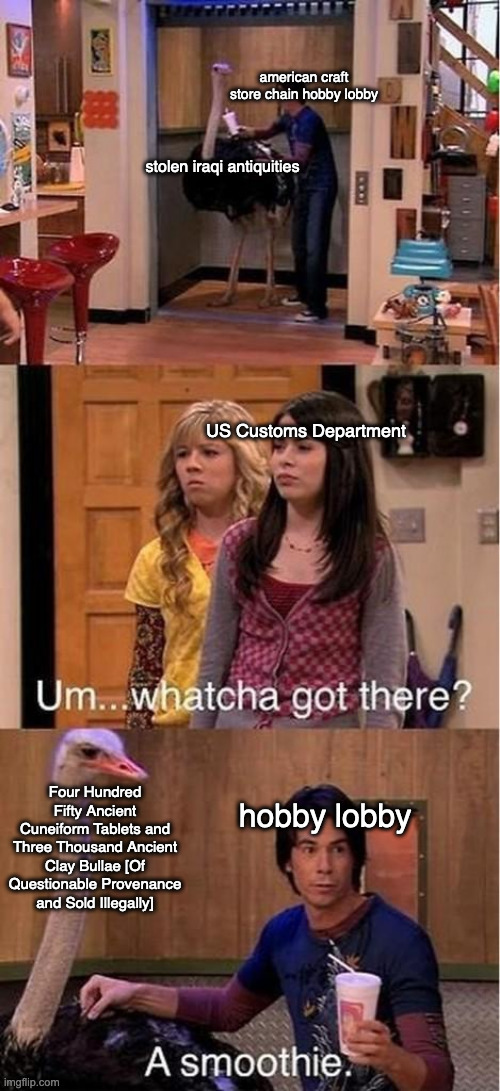#*and evangelicalism
Text
I cannot express how jarring it was after being raised by a "Porn Addiction Coach" to get into a relationship with a woman and come face to face with the fact that she did actually want me to sexually desire her.
Like, in Evangelical Purity Culture, male desire was basically poison. It was a threat. It was this constant temptation that would destroy everything. And even after leaving, in the sort of queer, feminist spaces i spend most of my time in that wasn't something that pretty much anyone was spending time actively dissuading me from feeling.
But my desire is good. It's not something that I'm being accepted in spite of. It's a positive thing. It's a bonus. Not even just vanilla stuff, all the stuff I'd convinced myself were these weird terrible desires that were shameful to have.
It honestly took me over a decade to fully accept that. To stop dissociating during sex and confront that I was, in fact, being a massive perv and that was fantastic and preferable and that I could accept that into my self-image without shame or self hatred.
But it's important to do. It's important to leave relationships that don't welcome that part of you. To know that your sexuality is valuable and valid and worth owning and celebrating. Because the alternative is just...not being. Either existing as yourself and repressing the part of your identity that is sexual or allowing that sexuality to exist but turning off your self while it does.
#religious trauma#ex christian#deconversion#evangelical purity culture#purity culture#me writing stuff
19K notes
·
View notes
Text
i always roll my eyes a little bit when someone openly looks down on people who are religious/spiritual. ur telling me youve never made a wish before?? never sent a little prayer out into the universe???? get real
#like its worthwhile criticising shit like homeo medicine or evangelism#but ur gonna call someone a brainless moron for doing a tarot reading???? come on man#EDIT OH MY GOD IM AN ATHEIST. I AM AN ATHEIST. IM NOT TRYING TO CONVERT ANYONE ARE YOU SERIOUS
5K notes
·
View notes
Text
just to be completely clear, the amount of military power and political influence Israel has has NOTHING to do with its settlers being Jewish. Israel is a force for American & European interests in the region and they're just doing what America does and allows/encourages its close allies to do.
war crimes aren't considered war crimes when someone America finds useful is doing them. european and american pushback against anyone criticizing Israeli apartheid & genocide is 100% because these crimes are useful to American & European hegemony.
Governments that are deeply antisemitic, like France, aren't suddenly caring about Jewish people. Jewish people, persecuted the world over, don't hold some kind of hegemonic power outside of Israel.
The state of Israel and its attendant brutal treatment of the locals are both incredibly useful to the US, and American hegemony means we're expected to celebrate both.
not bc they're Jewish. this isn't a break in the pattern of western antisemitism and it's not evidence that antisemitism doesn't exist.
it's just like how you could get fired for saying shit against the US war in Afghanistan when i was growing up. it is 100% about US military and political interests (ok slightly western europe too but lbr)
#this widespread support has NOTHING to do w Israelis being Jewish apart from evangelicals wanting to use them as pawns for armageddon#the primary reason this is all being treated like it's ok is cuz it's useful to the usa#i feel like this post is going to bring terrible ppl into my inbox but i'm gonna leave it rebloggable for now#if our (US+EU) governments push back at all it will be because it stops being useful to us#either because Israel isn't doing this as quickly & efficiently as promised and it looks like Palestine might actually do some damage#or if it otherwise becomes too politically costly by causing too much tension between the US & other nationstates#either allies like Saudi or if states we aren't quite ready to have war w seem to be ready to throw down over it
13K notes
·
View notes
Text

eye of the vulture king
#ahhhh I feel like I drew buddy too innocent here. wish I could give more indicators that he is being manipulated#but all the stuff I drew felt too cheesy!#my art#buddy dawn#kristen applebees#fantasy high#fhjy#d20#unironically that one minute segment changed my feelings about buddy so bad. evangelicals who die without questioning their faith#make me feel so tragic#trauma bonding w these two would be fun but also consider: he meets helio in the afterlife and see what a wreck his religion is and#wants to help helio out lmao#would be fun
3K notes
·
View notes
Text

you guys know about the hobby lobby smuggling scandal right
#this is. the funniest crime ever to me#tfw ur a craft store owned by evangelicals so you smuggle in some artifacts you think 'prove' the bible to put in your bible museum (and ge#a tax write off but we neednt mention it)#i think about this every time i pass a hobby lobby XD
4K notes
·
View notes
Text
Mudrock torso warning! Do not look below if you don't wanna see torso again!!

Thanks everyone who participated in the poll!
#I have heard the peoples' cries. The people want muscles#I've found that the sexy firefighter calendars are full of great references lol#Please don't tag this as unsafe for work it's just torso! The evangelical Tumblr censors better not block this one again lmao#Arknights#Mudrock#Pixel Art#Artists on Tumblr#Digital Art#She has a super cool outfit but for the life of me I couldn't figure out what was supposed to be what lol#AK
5K notes
·
View notes
Text
the way the other angels treat aziraphale reminds me of how people at church would treat obviously queer kids who didn’t know they were queer yet. especially in the flashback scenes and in s1. they all see he’s different and treat him like shit but in that really vague passive aggressive christian way y’know
#does this make any sense#good omens#good omens 2#aziraphale#religious trauma#exvangelical#muriel#gomens#gomens 2#ex evangelical#aziracrow#queer#growing up religious#ineffable husbands#metatron#my posts
3K notes
·
View notes
Text
Where is America going?

1K notes
·
View notes
Text

#yemen#jerusalem#tel aviv#current events#palestine#free palestine#gaza#free gaza#news on gaza#palestine news#news update#war news#war on gaza#anti zionism#evangelicalism#gaza genocide#genocide
884 notes
·
View notes
Text

#florida#texas#evangelicals#maga morons#qanon morons#vote blue#trump crime family#republican shit show#iowa#utah#meme#arizona#dump trump#memes#alabama#colorado#trump trials
920 notes
·
View notes
Text

[Image ID (sorta, basically just the text from it):
GET KOSA TRENDING.
STOP SCROLLING NOW!
AS OF FEBRUARY 21ST, 2024, WE GOT FIVE DAYS UNTIL THE DAY OF DECISION OF THE KOSA BILL, WHICH WILL CAUSE MASS CENSORSHIP ROUND THE INTERNET IF PASSED. OR DOOMSDAY. WE NEED EVERYONE TO KNOW ABOUT THIS AND CONTRIBUTE. I'M NOT GIVING UP ON YOU ALL.
WE'RE DOWN TO THE WIRE BUT WE CAN'T GIVE UP YET. IF WE GIVE UP, EVERYTHING IS OVER. IF WE DON'T, AT LEAST WE HAVE A CHANCE.
I'M THE ONE WHO SOUNDED THE ALARM, AND I'M NOT GOING TO CURL UP AND DIE YET.
Reblog this post in every LEGAL way you can under the Tumblr guidelines with the appropriate tags. TELL AND TAG EVERYONE YOU KNOW, then add the tags to see below... and more if you can think of any complying.
Visit badinternetbills.com if you want to find a way to defeat KOSA. It WILL NOT take much of your time. Reblog with any other information or sources, too-- but make sure to reblog if you can.
Reblog if you support lgbtq+ content.
Reblog if you support questioning queer youth and/or abused youth getting the information they need.
Reblog if you support Ao3 and/or other sites that wholeheartedly preserve talentedly made media.
Reblog if you're going to repost this on other sites than Tumblr and spread the word across Twitter, Tik Tok, Pinterest, or elsewhere, alongside the link to badinternetbills.com.
END image ID]
Hey, everyone. So yeah, this is happening. We're still fighting this battle. And we can't give up now. We can't. We can't stand idly by while one of the most important resources that helped us all wake up, or at least start to question things, is being threatened by the government.
We can't stand idly by when kids, teens, and adults just like us still trapped inside might lose access to the resource that could help them wake up. We can't stand idly by when they might lose access to their non JW friends and family. We CAN'T stand idly by when we can do something to stop this bill from passing.
I am sick and tired of this same old song, where conservative fuckers higher up think they can oppress everyone. I am FUCKING SICK of it.
Please, reblog both this post and the original post linked above what I've written, and do what you can to stop KOSA, please. We are running out of time.
I suggest that if it is within your power to do so, that you do more than simply reblog and assume someone else will do something. DON'T assume that. Please do more than just reblogging if you are able to, because that's not really enough at this point.
Call/email representatives in the House and tell them to oppose KOSA (you may want to list different reasons depending on who you're calling, some House representatives are anti-LGBTQ+, so it may be best to tell them to oppose because it violates people's privacy, safety, and anonymity online). Print posters and put them up where legal if you can.
Sharing all this information to other social media sites (Instagram, Reddit, TikTok, the bird app) to reach more people can really help too. The wider the reach, the better.
Thank you. Now let's fucking rip that bill apart like we rip apart Watchtower magazines and eat it for fucking breakfast.
(In a "we're eating it and the politicians who are sponsoring it are looking on in horror" kind of way)
#kids online safety act#internet censorship#stop kosa#exjw#ex jw#ex jehovah's witness#ex jehovah's witnesses#not necessarily ex jw related tags but still relevant bc this bill also affects these communities:#queer#lgbtqia#lgbt#lgbtqplus#lgbtq community#ex catholic#ex mormon#ex christian#ex evangelical#ex cult
2K notes
·
View notes
Text

1K notes
·
View notes
Text
Sometimes when I see posts about abortion my mind flashes back to the time when I was like 14 and there was this bullshit book i was reading for a class (christian homeschool co-op) (red state) (baby high schooler in process of developing my own opinions about things)
and there was this website associated with the book, and I found this article describing an event organized by Feminists in some Liberal Blue State that was like a celebration of abortion rights or something.
The article described how the women made baby-shaped cookies and laughed as they broke them into pieces to "symbolize" abortion and there was like this table set up where attendees were invited to write down reasons abortion was important
and. and the article said. that one of the reasons written down was
(this is the part that is BRANDED into my neurons)
"My vagina is too pretty for a baby to crawl out"
3K notes
·
View notes
Text
It cannot be stressed enough that Israel is the ONLY country "Leftists" feel comfortable talking about this way.
There's no support for anti-war and anti-government protests on the ground in Israel (you know, the protests that might actually make a difference)
There's no empathy for or solidarity with civilian victims (only when it comes to Israeli civilians are you going to hear self-described Feminists and Leftists explain why rape is fine, actually)
No understanding of the difference between the state and its' citizens (or even the Jewish people, generally)
Absolutely no desire to actually learn about the history of the region and conflict comprehensively (the expulsion of over 700,000 Palestinians during the Nakba was horrific, and a crime that needs to be addressed. Out of curiosity, what was happening to the 800,000-1,000,000 Jews living in the surrounding Arab nations around then?)
All understanding of complexity and nuance? Of the concerns of minority, queer, disabled, and other vulnerable populations with the country? It's all out the window. It's all just one big Evil Zionist Entity.
This is how even accurate criticisms and condemnations of Israel can end up being antisemitic. You are viewing the Israeli state and the people who live there through a lens that you hold to no other nation-state on Earth. (and then holding random Jews in the diaspora to account for that).
You can do better and still advocate for Palestinian liberation and autonomy. It's actually not that hard.
#I am so tired#Israel is committing war crimes and y'all are harassing random Jewish kids trying to get to their finals#who's agenda do you really think you're serving here?#It's Islamist-Kahanist-Evangelical pact from hell that wants this conflict to never end that's who#jumblr#antisemitism
883 notes
·
View notes
Text

#Republican fake Christian#evangelical assholes#republican assholes#Trump sycophant#Jan 6th insurrectionist#never trump
729 notes
·
View notes
Text
tools not rules: the importance of critical thinking
More than once, I’ve talked about the negative implications of Evangelical/purity culture logic being uncritically replicated in fandom spaces and left-wing discourse, and have also referenced specific examples of logical overlap this produces re, in particular, the policing of sexuality. What I don’t think I’ve done before is explain how this happens: how even a well-intentioned person who’s trying to unlearn the toxic systems they grew up with can end up replicating those systems. Even if you didn’t grow up specifically in an Evangelical/purity context, if your home, school, work and/or other social environments have never encouraged or taught you to think critically, then it’s easy to fall into similar traps - so here, hopefully, is a quick explainer on how that works, and (hopefully) how to avoid it in the future.
Put simply: within Evangelism, purity culture and other strict, hierarchical social contexts, an enormous value is placed on rules, and specifically hard rules. There might be a little wiggle-room in some instances, but overwhelmingly, the rules are fixed: once you get taught that something is bad, you’re expected never to question it. Understanding the rules is secondary to obeying them, and oftentimes, asking for a more thorough explanation - no matter how innocently, even if all you’re trying to do is learn - is framed as challenging those rules, and therefore cast as disobedience. And where obedience is a virtue, disobedience is a sin. If someone breaks the rules, it doesn’t matter why they did it, only that they did. Their explanations or justifications don’t matter, and nor does the context: a rule is a rule, and rulebreakers are Bad.
In this kind of environment, therefore, you absorb three main lessons: one, to obey a rule from the moment you learn it; two, that it’s more important to follow the rules than to understand them; and three, that enforcing the rules means castigating anyone who breaks them. And these lessons go deep: they’re hard to unlearn, especially when you grow up with them through your formative years, because the consequences of breaking them - or even being seen to break them - can be socially catastrophic.
But outside these sorts of strict environments - and, honestly, even within them - that much rigidity isn’t healthy. Life is frequently far more complex and nuanced than hard rules really allow for, particularly when it comes to human psychology and behaviour - and this is where critical thinking comes in. Critical thinking allows us to evaluate the world around us on an ongoing basis: to weigh the merits of different positions; to challenge established rules if we feel they no longer serve us; to decide which new ones to institute in their place; to acknowledge that sometimes, there are no easy answers; to show the working behind our positions, and to assess the logic with which other arguments are presented to us. Critical thinking is how we graduate from a simplistic, black-and-white view of morality to a more nuanced perception of the world - but this is a very hard lesson to learn if, instead of critical thinking, we’re taught instead to put our faith in rules alone.
So: what does it actually look like, when rule-based logic is applied in left-wing spaces? I’ll give you an example:
Sally is new to both social justice and fandom. She grew up in a household that punished her for asking questions, and where she was expected to unquestioningly follow specific hard rules. Now, though, Sally has started to learn a bit more about the world outside her immediate bubble, and is realising not only that the rules she grew up with were toxic, but that she’s absorbed a lot of biases she doesn’t want to have. Sally is keen to improve herself. She wants to be a good person! So Sally joins some internet communities and starts to read up on things. Sally is well-intentioned, but she’s also never learned how to evaluate information before, and she’s certainly never had to consider that two contrasting opinions could be equally valid - how could she have, when she wasn’t allowed to ask questions, and when she was always told there was a singular Right Answer to everything? Her whole framework for learning is to Look For The Rules And Follow Them, and now that she’s learned the old rules were Bad, that means she has to figure out what the Good Rules are.
Sally isn’t aware she’s thinking of it in these terms, but subconsciously, this is how she’s learned to think. So when Sally reads a post explaining how sex work and pornography are inherently misogynistic and demeaning to women, Sally doesn’t consider this as one side of an ongoing argument, but uncritically absorbs this information as a new Rule. She reads about how it’s always bad and appropriative for someone from one culture to wear clothes from another culture, and even though she’s not quite sure of all the ways in which it applies, this becomes a Rule, too. Whatever argument she encounters first that seems reasonable becomes a Rule, and once she has the Rules, there’s no need to challenge them or research them or flesh out her understanding, because that’s never been how Rules work - and because she’s grown up in a context where the foremost way to show that you’re aware of and obeying the Rules is to shame people for breaking them, even though she’s not well-versed in these subjects, Sally begins to weigh in on debates by harshly disagreeing with anyone who offers up counter-opinions. Sometimes her disagreements are couched in borrowed terms, parroting back the logic of the Rules she’s learned, but other times, they’re simply ad hominem attacks, because at home, breaking a Rule makes you a bad person, and as such, Sally has never learned to differentiate between attacking the idea and attacking the person.
And of course, because Sally doesn’t understand the Rules in-depth, it’s harder to explain them to or debate with rulebreakers who’ve come armed with arguments she hasn’t heard before, which makes it easier and less frustrating to just insult them and point out that they ARE rulebreakers - especially if she doesn’t want to admit her confusion or the limitations of her knowledge. Most crucially of all, Sally doesn’t have a viable framework for admitting to fault or ignorance beyond a total groveling apology that doubles as a concession to having been Morally Bad, because that’s what it’s always meant to her to admit you broke a Rule. She has no template for saying, “huh, I hadn’t considered that,” or “I don’t know enough to contribute here,” or even “I was wrong; thanks for explaining!”
So instead, when challenged, Sally remains defensive: she feels guilty about the prospect of being Bad, because she absolutely doesn’t want to be a Bad Person, but she also doesn’t know how to conceptualise goodness outside of obedience. It makes her nervous and unsettled to think that strangers could think of her as a Bad Person when she’s following the Rules, and so she becomes even more aggressive when challenged to compensate, clinging all the more tightly to anyone who agrees with her, yet inevitably ending up hurt when it turns out this person or that who she thought agreed on What The Rules Were suddenly develops a different opinion, or asks a question, or does something else unsettling.
Pushed to this sort of breaking point, some people in Sally’s position go back to the fundamentalism they were raised with, not because they still agree with it, but because the lack of uniform agreement about What The Rules Are makes them feel constantly anxious and attacked, and at least before, they knew how to behave to ensure that everyone around them knew they were Good. Others turn to increasingly niche communities and social groups, constantly on paranoid alert for Deviance From The Rules. But other people eventually have the freeing realisation that the fixation on Rules and Goodness is what’s hurting them, not strangers with different opinions, and they steadily start to do what they wanted to do all along: become happier, kinder and better-informed people who can admit to human failings - including their own - without melting down about it.
THIS is what we mean when we talk about puritan logic being present in fandom and left-wing spaces: the refusal to engage with critical thinking while sticking doggedly to a single, fixed interpretation of How To Be Good. It’s not always about sexuality; it’s just that sexuality, and especially queerness, are topics we’re used to seeing conservatives talk about a certain way, and when those same rhetorical tricks show up in our fandom spaces, we know why they look familiar.
So: how do you break out of rule-based thinking? By being aware of it as a behavioural pattern. By making a conscious effort to accept that differing perspectives can sometimes have equal value, or that, even if a given argument isn’t completely sound, it might still contain a nugget of truth. By trying to be less reactive and more reflective when encountering positions different to your own. By accepting that not every argument is automatically tied to or indicative of a higher moral position: sometimes, we’re just talking about stuff! By remembering that you’re allowed to change your position, or challenge someone else’s, or ask for clarification. By understanding that having a moral code and personal principles isn’t at odds with asking questions, and that it’s possible - even desirable - to update your beliefs when you come to learn more than you did before.
This can be a scary and disquieting process to engage in, and it’s important to be aware of that, because one of the main appeals of rule-based thinking - if not the key appeal - is the comfort of moral certainty it engenders. If the rules are simple and clear, and following them is what makes you a good person, then it’s easy to know if you’re doing the right thing according to that system. It’s much, much harder and frequently more uncomfortable to be uncertain about things: to doubt, not only yourself, but the way you’ve been taught to think. And especially online, where we encounter so many more opinions and people than we might elsewhere, and where we can get dogpiled on by strangers or go viral without meaning to despite our best intentions? The prospect of being deemed Bad is genuinely terrifying. Of course we want to follow the Rules. But that’s the point of critical thinking: to try and understand that rules exist in the first place, not to be immutable and unchanging, but as tools to help us be better - and if a tool becomes defunct or broken, it only makes sense to repair it.
Rigid thinking teaches us to view the world through the lens of rules: to obey first and understand later. Critical thinking teaches us to use ideas, questions, contexts and other bits of information as analytic tools: to put understanding ahead of obedience. So if you want to break out of puritan thinking, whenever you encounter a new piece of information, ask yourself: are you absorbing it as a rule, or as a tool?
10K notes
·
View notes